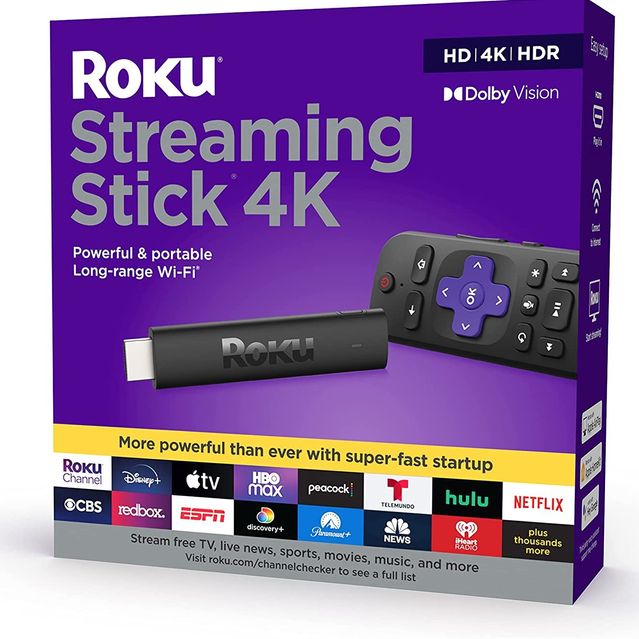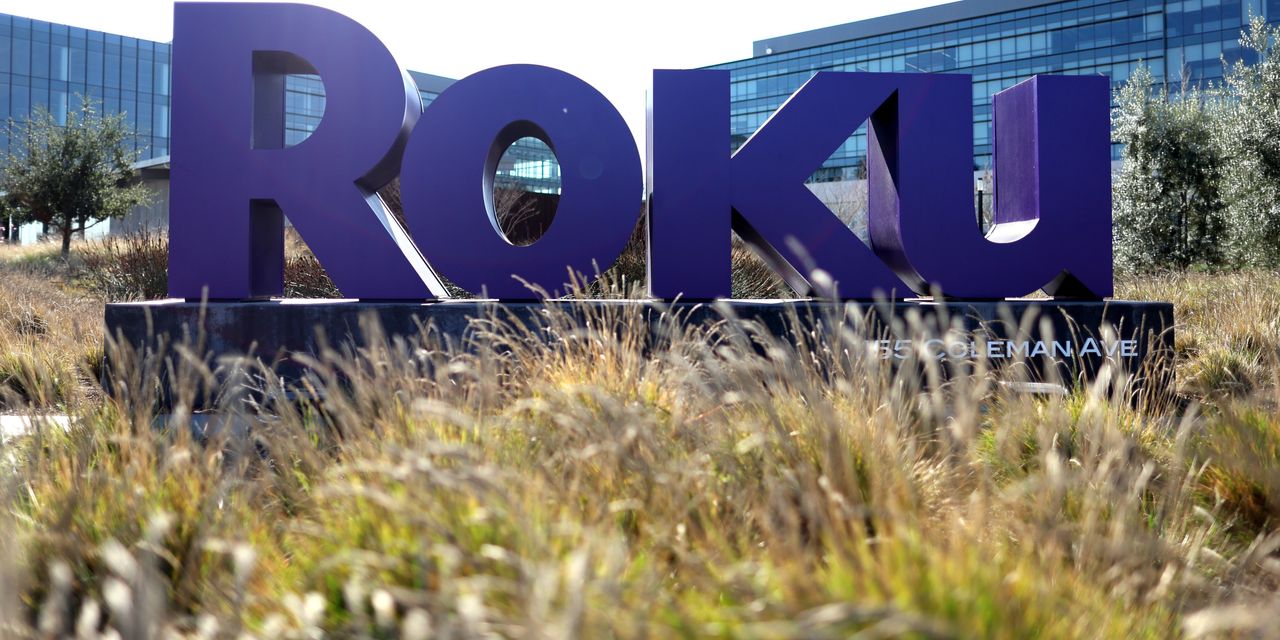Roku Inc.’s stock was getting punished Thursday after the streaming-media company’s latest forecast sparked fears about the fate of streaming advertising in an uncertain economic environment.
Shares were off more than 20% in premarket trading Thursday, a move that D.A. Davidson analyst Tom Forte attributed to the company’s weaker-than-expected outlook. He brought his price target on the stock down to $80 from $130 after Roku’s report, which contained a forecast for $800 million in holiday-quarter revenue, below the consensus view by nearly $100 million.
Other analysts also brought down their price targets on shares of Roku as they mused about whether the current advertising landscape was as troubled as the company’s outlook would imply. Sometimes weak forecasts are viewed by Wall Street as conservative, and the key debate Thursday was whether that was true in Roku’s current case.
Also read: Netflix and Disney+ Are About to Get Ads. Roku Has Bad News for Them.
The latest report, “especially against some recent commentary from other industry players and a relatively healthy [third-quarter report], begs the question if Roku’s mgmt. team is baking in unusually high conservatism or if Roku’s business model (and value prop) is structurally impaired,” wrote Evercore ISI analysts led by Shweta Khajuria. “We believe it is some of the former, and very little of the latter.”
Still, Khajuria and the Evercore team kept their equal-weight rating on the stock as they reduced their price target to $55 from $75.
“We downgraded Roku shares in July with the thesis that the business wasn’t broken in our view, but the macro headwinds were just too severe for the company, with no near-to-mid-term catalyst, and ongoing elevated levels of [operating expense] spend,” they wrote. After the latest report, “this remains our view.”
Wells Fargo’s Steven Cahall also weighed in on the implications of the forecast.
“We don’t think it was setting a low bar, but rather visibility in the TV scatter [which represents ads bought during the quarter] has decreased as recession behaviors have picked up with advertisers,” he wrote in a note to clients. “Headwinds in the scatter market continue to worsen, we think visibility on [the fourth quarter] is now low and while ROKU garnered some ~[$1 billion] in upfront commitments we think terms are squishier vs TV networks.”
He reduced his price target to $45 from $64 while maintaining an equal-weight rating.
Roku executives cautioned in their shareholder letter that they expected “the macro environment to further pressure consumer discretionary spend and degrade advertising budgets, especially in the TV scatter market.”

Roku’s streaming stick.
Chief Executive Anthony Wood added on the earnings call that while “the holiday season is typically the strongest period for a lot of companies, including Roku,” companies “are pulling back their ad budgets because they’re uncertain if there will be a recession or not, and so a lot of [fourth-quarter] ad campaigns are being canceled.”
Analysts at Raymond James wrote that they continued to like Roku’s long-term opportunities in areas like international expansion, but they “expect macro headwinds to impact Roku through the remainder of 2022 and potentially into 2023.”
They have a market-perform rating on the stock.
Also read: How the top streaming-plan prices compare as Netflix launches cheaper, ad-supported tier
Despite Roku’s projection for a rockier holiday quarter than usual, some bulls held strong.
Over at JPMorgan, analysts led by Cory Carpenter said they didn’t view a weak TV scatter market, which refers to advertising sold closer to the programming air date rather than in advance, to be “thesis changing.”
They deem the ongoing shift to streaming and away from linear media as “strong” and seemed to join the camp of analysts seeing some conservatism in the forecast.
Since the fourth quarter is heavily weighted toward the back end, they offered that Roku’s outlook “reflects more of [management’s] pessimistic view on the holiday season than current trends.” Put another way, “the guide reflects an expectation that macro further deteriorates through the [quarter],” they said.
“This could ultimately be correct, but Roku’s macro outlook seems more negative than what we’ve heard from many other advertisers,” the JPMorgan team added.
They maintained their overweight rating but lowered their price target to $75 a share from $100 a share.
Also read: Roku Is Getting Big Enough to Be a Buyout Target. Here’s Who Might Want It
